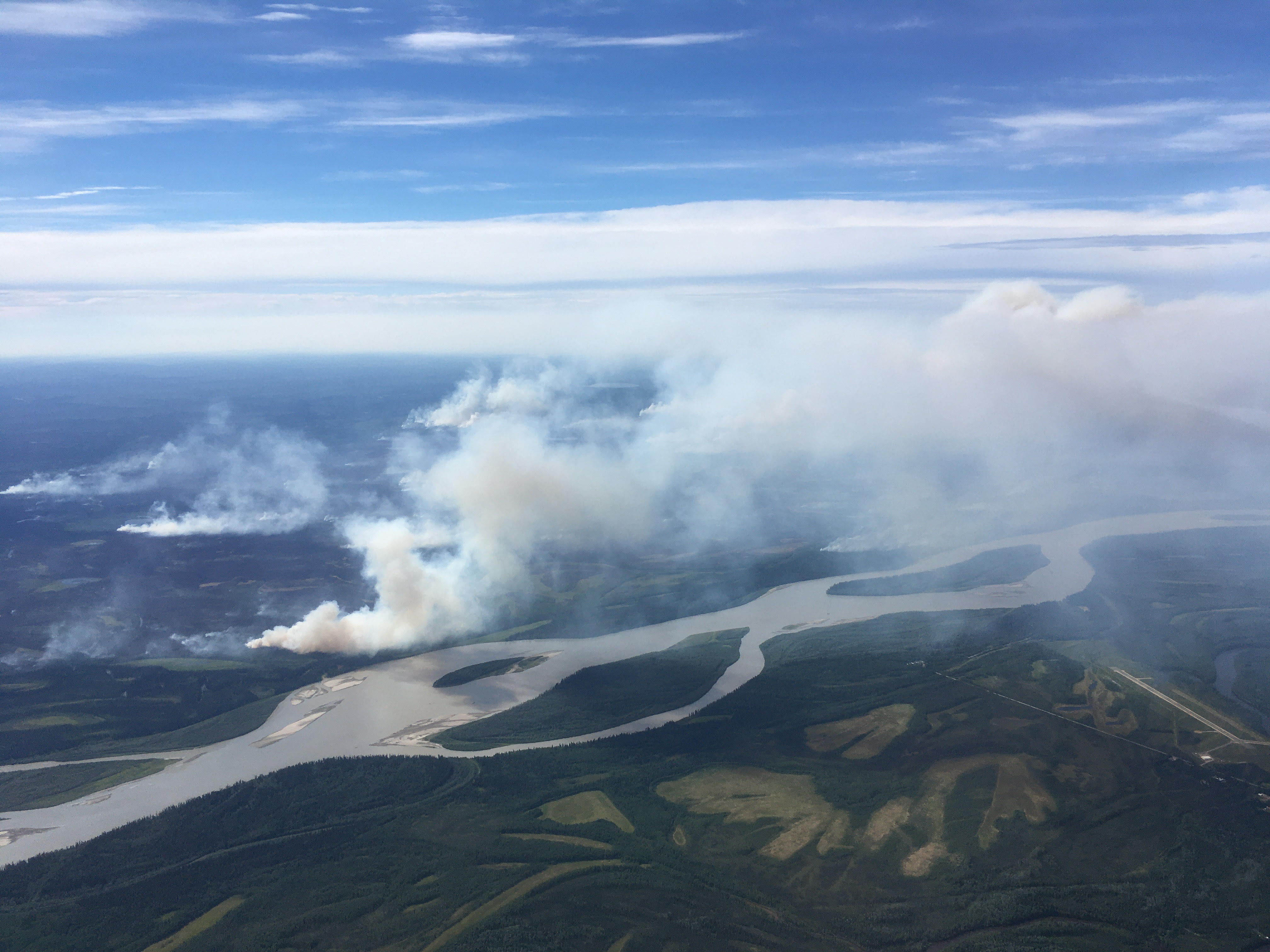Research helps forecast the wildfire season
Zav Grabinski
Dec. 13, 2022

The Dry Creek Fire burns south of Manley Hot Springs near the Tanana River in 2021. The fire was photographed during a flight to acquire hyperspectral imagery of burned areas.
òòò½´«Ã½â€™s wildfire season is intensifying, and wildfire managers have called on science to help understand the changes and better prepare for what’s to come. In response, the University of òòò½´«Ã½ Fairbanks’s Boreal Fires team is conducting a wealth of fire science research and developing predictions about the coming wildfire season.
The team combines knowledge of weather systems, climate models, fire history and remote sensing imagery to help forecast the likelihood of wildfire events months in advance. During the American Geophysical Union fall meeting this week, nine Boreal Fires team members are sharing their research on seasonal wildfire prediction.
- òòò½´«Ã½â€™s wildfire season typically ends after significant rains. International Arctic Research Center scientist Rick Lader predicts when wildfire season-ending rains will come by examining patterns of high-level atmospheric pressure and low-level surface pressure.
- Timing of snowmelt can impact the length and severity of the fire season. Peter Bieniek’s research predicts snowmelt across the state by examining sea ice breakup, El Nino patterns and Pacific Ocean storm tracks.
- Lightning strikes are the primary cause of large wildfires in òòò½´«Ã½. Graduate student Joshua Hostler looks at climate factors that affect lightning to predict the likelihoods of lightning across the state. Accurate forecasts for the fire season help wildfire managers plan and allocate critical fire suppression resources.
- Graduate student Cecelia Borries-Strigle uses seasonal weather forecasts to predict how severe wildfire fire activity will likely be one and three months in advance.
The six other presentations include: Chris Waigl, on burn severity mapping of the 2019 McKinley Fire; Uma Bhatt, on the 2022 òòò½´«Ã½ fire season; Anushree Badola, on vegetation mapping from satellite imagery; Jen Schmidt, on factors that increase the likelihood of a structure to burn in a wildfire; and Jen Delamere, on how the Joint Polar Satellite System provides critical resources to fire managers.
The Boreal Fires team is funded by the òòò½´«Ã½ Established Program to Stimulate Competitive Research. The team is in its fifth and final year of a National Science Foundation grant. The team’s impressive research is being developed into resources that land managers can use in wildfire suppression and decision making, and that can build community resilience to wildfire. This project collaborates with the òòò½´«Ã½ Fire Science Consortium, which helps connect wildfire research and management.


